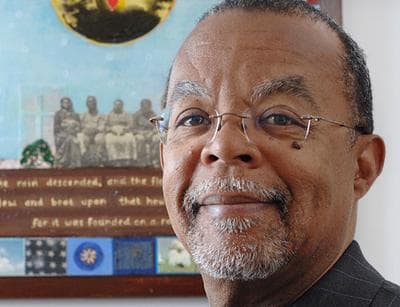Advertisement
Charges Against Gates Dropped, But Professor Wants Apology
Resume
Prosecutors have dropped disorderly conduct charges against Harvard professor Henry Louis Gates, Jr. But that might not quiet the controversy surrounding police treatment of Gates, one of the nation's pre-eminent African-American scholars.
The arrest of Gates outside his home in Cambridge has drawn world-wide attention. The story about a famous, black professor being arrested by a white police officer in liberal Cambridge has become a flash point in the debate about post-Obama race relations. Here's Gates, an expert on race, accusing someone of racism.
So, perhaps it's not surprising that the Cambridge police department sought to drop the criminal charges Tuesday, six days after the arrest.
"We don't believe that either professor Gates or the Cambridge Police Department had their best day on Thursday," said Kelly Downs, a spokeswoman for the Cambridge Police Department.
One of Gates' attorneys, Walter Prince, said he spoke with the Cambridge Police Department before they decided to ask prosecutors to drop the charges. "I believe the matter has been resolved at this juncture and both sides are satisfied," Prince said.
Everyone except his client. Gates told the Boston Globe on Tuesday that he wants an apology from the officer who arrested him. "I was treated horrendously by Sgt Crowley. I was Crowleyed," Gates told the Globe.
Sgt. James Crowley arrested Gates outside his home on Thursday, and his police report has provided many details of the arrest. It contradicts Gates' version of events.
No one disputes that Gates arrived at his own home in the middle of the day. When he couldn't get in, he forced the door open. And that's when a neighbor called the police, worried he was breaking in.
What happened next depends on whom you ask. Gates says the police officer walked into his house and asked for identification. Gates says he handed over his drivers license and didn't get upset until the police officer asked him to step outside.
The police report, however, says Gates was indignant from the start, refusing to show any identification and accusing the police officer of racism. The report describes Gates following the officer outside, demanding his name and badge number. In his report, Sgt. Crowley says he'd already given Gates that information.
"The police report is full of this man's broad imagination," Gates told the Globe. "The only reason I was upset is because he defied the law by not giving me his name and badge number and every citizen has a right to that."
Even if Gates did get upset, some argue that's not enough to justify his arrest.
"This is the last thing that the police want to do," said Tom Nolan, a Boston University criminal justice professor and former Boston police officer.
Nolan said it's standard operating procedure for cops to arrest people after public confrontations. "The last thing they want to do is to arrest someone for a disorderly person charge in the middle of the street over what has turned out to be an escalating confrontation," he said. "But they saw it in their experience, in their judgment and hopefully their wisdom, as the only way to bring this to a conclusion."
Criminal justice may have its newest scholar. Professor Gates has spent the last several years tracing the lineage of famous African Americans. On Tuesday, he told the Boston Globe he wants to study racial profiling.
This program aired on July 22, 2009.